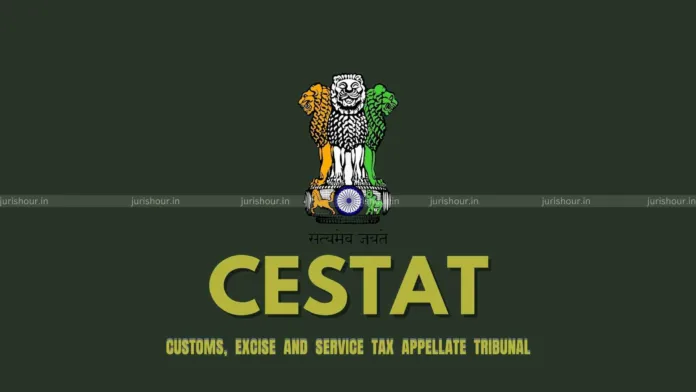The Delhi Bench of Customs, Excise and Service Tax Appellate Tribunal (CESTAT) has held that mere shortages detected at the time of visit of the officers cannot ipso facto lead to the allegations and findings of clandestine removal.
The bench of Justice Dilip Gupta, President and Hemambika R. Priya (Technical Member) has observed that the alleged authors of the loose papers were not examined. The demand of Rs. 1,76,650 based on loose papers recovered from the factory premises of the appellant, therefore, cannot be sustained and deserves to be set aside. A demand based solely on shortage of stock cannot be sustained in the absence of corroborative evidence.
The appellant is engaged in the manufacture of HB Wire, GI Wire, Stay Wire, Barbed Wire and Binding Wires. It availed CENVAT credit of duty paid on the inputs, capital goods and input service under the 2004 Credit Rules and utilized such credit towards payment of duty on the final products.
It is stated that on 08.04.2016, the Central Excise Officers of the Preventive Wing of the department conducted an investigation in the factory premises of the appellant. The Officers scrutinized the records found in the premises and some documents were also seized for further scrutiny. A panchanama was drawn. Statements of Harsh Agrawal and Surendra Kumar Jain (Directors of the appellant), Narendra Kumar Rathod (security guard), Satyanand Soi (security-in-charge) and Ishwar Prasad Verma (loading-in-charge) were recorded under section 14 of the Central Excise Act.
A show cause notice was issued to the appellant after a period of almost 2 years and 7 months = invoking the extended period of limitation contemplated under sub-section (4) of section 11 of the Central Excise Act.
The show cause notice mentions that there was a shortage of the finished goods and raw material found during the course of physical verification and as the difference found in respect of the stock of Barbed Wire, Stay Wire and Chain Link was negligible, central excise duty involvement was arrived at only in respect of GI Wire, HB Wire, Wire Rod and Waste and Scrap found short.
The appellant contended that statements of witnesses recorded under section 14 of the Central Excise Act before a Gazetted Central Excise Officer during the course of investigation cannot be relied upon unless the procedure contemplated under section 9D of the Central Excise Act is scrupulously followed. Such statements would have no evidentiary value if the persons making them are not examined before the adjudicating authority and they are admitted in evidence in the interests of justice as is contemplated under section 9D(1)(b) of the Central Excise Act.
The department contended that the appellant did not make any request for cross-examination during the adjudication proceedings and, therefore, he cannot allege violation of section 9D(1)(b) of the Central Excise Act.
Section 14 of the Central Excise Act deals with power to summon persons to give evidence and produce documents in inquiries under the Central Excise Act. Any Central Excise Officer duly empowered by the Central Government in this behalf has the power to summon any person whose attendance he considers necessary either to give evidence or to produce a document in any inquiry which such Officer is making for any of the purposes of the Central Excise Act.
The tribunal while setting aside demand, interest and penalty held that the inference regarding clandestine removal ought to be outcome of a detailed investigation and consideration of other relevant incriminating material which could be based on the stock of raw material, finished products, use of consumption of electricity, employment of labour and many other relevant material.
Case Details
Case Title: M/s Surya Wires Pvt. Ltd. Versus Principal Commissioner, CGST, Raipur
Case No.: Excise Appeal No. 51148 Of 2020
Date: 01.04.2025
Counsel For Appellant: K. Krishnamohan Menon
Counsel For Respondent: Rakesh Agarwal
Read More: ICAI’s “New Exam Requirement” for Members Sparks Frenzy, But It’s All an April Fool’s Joke





